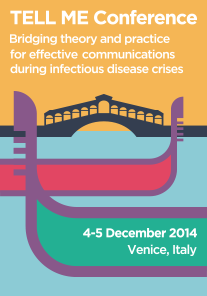D1.4 - Report on Vaccine Acceptance/Refusal to Vaccination
Read the document online:
D1.4 - Report on Vaccine Acceptance/Refusal to Vaccination
Resistance and opposition to vaccination is not a recent phenomenon. Even prior to the introduction of Edward Jenner’s smallpox vaccine, the practice of variolation was met with significant resistance. Such resistance has persisted over time, evolving in sync with the development and introduction of newer vaccines.
Although today’s communication landscape has changed the scope and tactics of vaccine resistance, two overarching themes have remained constant over time. The first of these is the relative merit of the vaccine, questioning whether the overall good of a vaccine outweighs its costs and risks. The second theme challenges compulsory and mandatory administration of vaccines, which are perceived infringement upon individual, religious, and philosophical liberties. In developing strategies to increase vaccine acceptance, both of these major sources of resistance should be addressed.
This report examines the topic of vaccine acceptance from different perspectives.
Section 1 introduces an overview of the scope, complexity, and significance of vaccine acceptance and resistance.
Section 2 provides an epidemiological assessment of both the US and EU populations, including vaccine coverage rates, the incidence of disease, and demographic characteristics of the unvaccinated.
Section 3 is an analysis of risk, including the acceptable risk, actual risk, perceived risk, and theoretical risk associated with vaccination and vaccine‐preventable illness. Risk evaluation must weigh the risks of vaccine‐preventable illness against the known and theoretical risks associated with vaccination on both the individual and public health levels.
Section 4 examines the literature and explores the most significant influences on individual decision‐making regarding vaccination, giving particular attention to the 2009 H1N1 pandemic. Societal responsibility, personal risk perception, cultural and political factors, demographics, trust in the vaccine industry, and trust in medical professionals are identified as factors that influence one’s choice to vaccinate.
Section 5 looks at specific case examples from the vaccine opposition movement.
Section 6 identifies trends among the anti‐vaccination case study examples and discusses who they are, what they provide, and how they outreach to the public. It also discusses consistencies in the tactics and arguments that are used by such groups and how they play into personal factors of decision‐making.
Section 7 addresses strategies to overcome resistance to vaccination.


